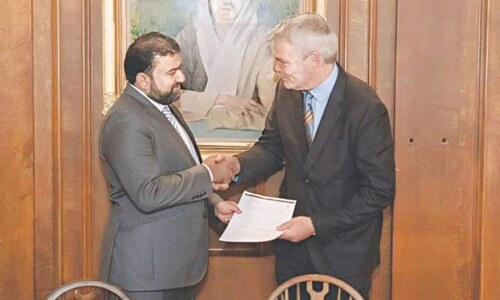THE dreaded outcome of the state’s relentless campaign to control social media has become a reality. With the notification of the ‘Removal and Blocking of Unlawful Online Content (Procedure, Oversight and Safeguards) Rules 2020’ under the Prevention of Electronic Crimes Act, the government now has legal cover to issue blanket bans on digital content. The rules apply to any social media company operating in Pakistan and require them to set up a brick-and-mortar presence in the country with the goal of eventually moving data servers here.
Given the state’s proclivity for surveillance, clamping down on free expression and hounding journalists and activists who use social media to share information, this development marks a dark chapter in Pakistan’s digital rights story. In a continuation of this sinister tradition, the rules were gazetted without consultation with stakeholders, rights groups and citizens, despite initial promises that a discussion would take place. National and global digital rights groups have expressed outrage and concern over the rules for legitimate reasons. One worrying turnabout from the initial draft is the removal of the position of ‘national coordinator’ and the vesting of these powers with the historically censor-happy Pakistan Telecommunication Authority. Without providing adequate safeguards, the rules give sweeping powers to the PTA to ban and remove content, and ironically also empowers it to conduct a review of its decisions. Its words “integrity, security and defence of Pakistan” make room for blocking content that can create “hatred, contempt or disaffection of government or public servants”. Effectively, this means whistleblowers and journalists can be censored when sharing critical views which “harm the reputation” of federal or provincial government officials. The Asia Internet Coalition which represents several social media platforms including Facebook, Google and Apple has pointed out that the rules were passed without a discussion, labelling the demands draconian as the data localisation requirements will prevent people from accessing a free and open internet. Tragically, the same demands will hurt Pakistan’s digital economy and cut it off from the rest of the world as they lay the groundwork for an intimidating regulatory environment which forces companies to go against their privacy and regulatory policies regarding “established human rights norms on privacy and freedom of expression”. Not only are these rules a historic own goal on the part of the Ministry of Information, they also cement the government’s reputation of being paranoid, restrictive and intolerant.
Published in Dawn, November 21st, 2020






































